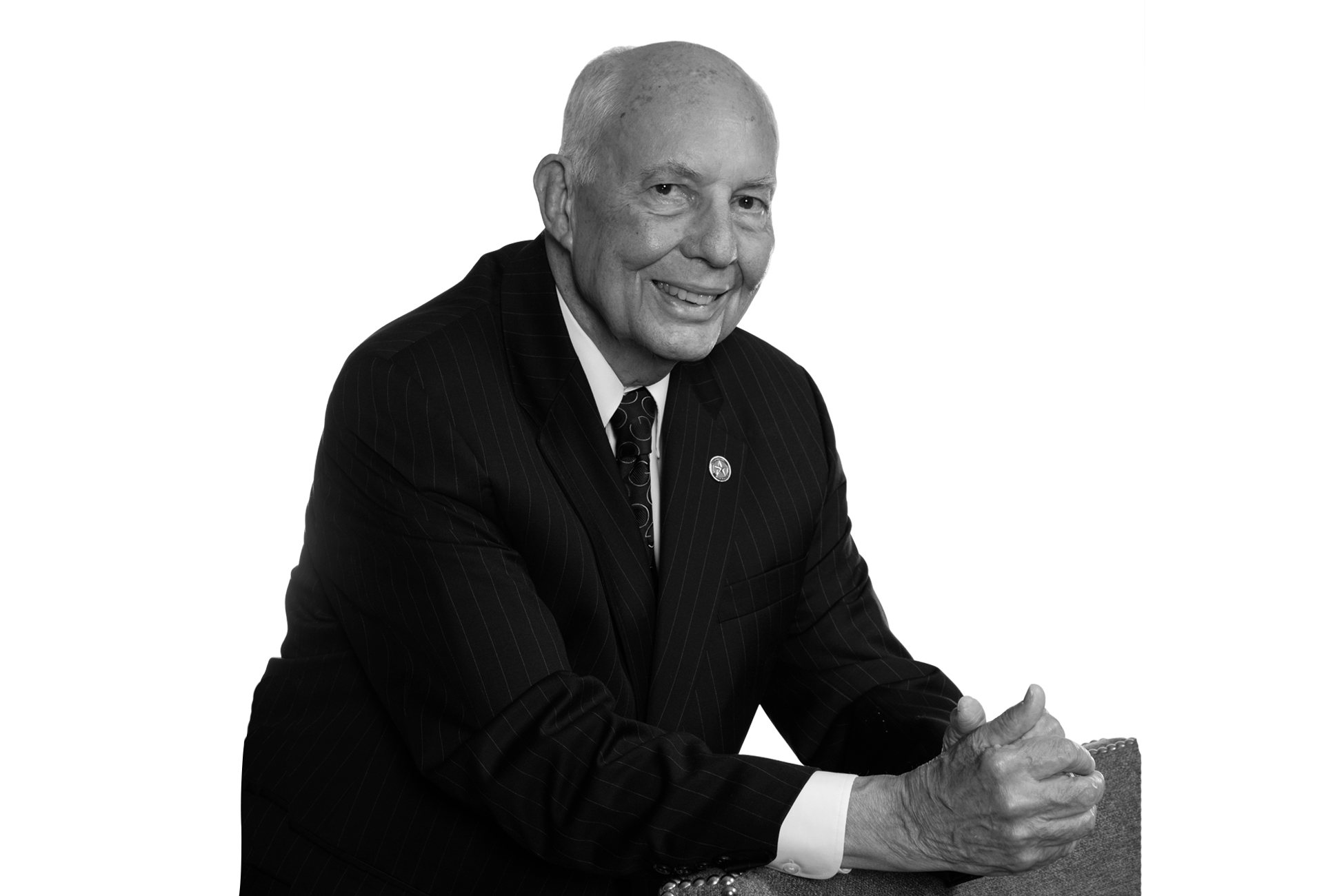J. Thomas “Tom” Ward
Photography by Brian Birzer
Education: B.A. Government ’54, The University of Texas at Austin; and M.S. Educational Administration, University of Southern California
Hometown: Austin, Texas
Tom Ward is a retired foreign service officer formerly with the U.S. Agency for International Development, based in Washington, D.C. After serving in the U.S. Army, he worked in the Office of the Registrar at UT Austin before starting his career in the foreign service. Throughout his numerous global assignments and since retirement, he has remained a dedicated advocate for the university. He serves as a member of the Liberal Arts Advisory Council, the Department of History Visiting Committee, the Chancellor’s Council and the UT System Archer Fellows Program in Washington, D.C., where he is a trustee and mentor to student interns from several UT System campuses.
What inspired you to establish the J. Thomas Ward Chair in International Relations and Global Studies?
Our rapidly changing world requires a clearer understanding of other nations, cultures and religions. Training in the field of international relations and global affairs is critical in answering this challenge. We need more specialists in foreign relations, national security, international trade and foreign languages. While there are several disparate international relations courses available at UT Austin, they need to be better coordinated and emphasized. My hope is that a senior professor as chair in international relations can provide the leadership needed.
“Liberal arts education provides us critical thinking and analysis to understand complex issues.”
J. Thomas “Tom” Ward
What are the world’s most pressing global issues?
First is the global assault on democracy worldwide by autocratic rulers. From World War II, the U.S. built a series of global alliances including the U.N., NATO, EU, economic and trade agreements that have served us well. They kept us safe during the Cold War. However, internationalism is currently under attack by a so-called America First isolationism. That isolationism in an earlier time led to the rise of Hitler and us into war. The alliances we created helped counter this threat. It is important to reestablish these as well as international trade agreements for our security to be maintained.
Other global issues include nuclear proliferation, international and domestic terrorism, poverty, climate change and the prevention of war with adversaries such as Russia, China, North Korea and Iran. Cyberwarfare is a threat. Inequality in every society needs to be addressed. Artificial intelligence will change our lives and needs to be better understood.
In what ways might a liberal arts education help to address these issues?
Liberal arts education provides us critical thinking and analysis to understand complex issues. Historians can help us know what has gone before, what was successful, what failed and why. Economists can explain why we have inflation, depressions and why trade wars are harmful. Psychologists and sociologists can help us understand each other. Government and political science helps us understand domestic and international political systems and why nations go to war.
What advice do you hope to pass on to the students you mentor?
I primarily mentor UT System students in Washington, D.C., for one-semester internships with U.S. government agencies, think tanks, private volunteer organizations, etc., depending on their area of interest. I try to give them some idea about the problems they may face in their field of interest. How to deal, how to get along, what government service, particularly foreign service, is like. I encourage them to learn as much as they can, be flexible and work hard. Common sense methods.
What do you consider your greatest accomplishment?
Liberal arts at UT helped me to become a better human being, to have a global outlook and to care for others. My career was in a U.S. government agency focused on economic development in general and humanitarian assistance in particular. In so far as we were successful, I received great satisfaction.
